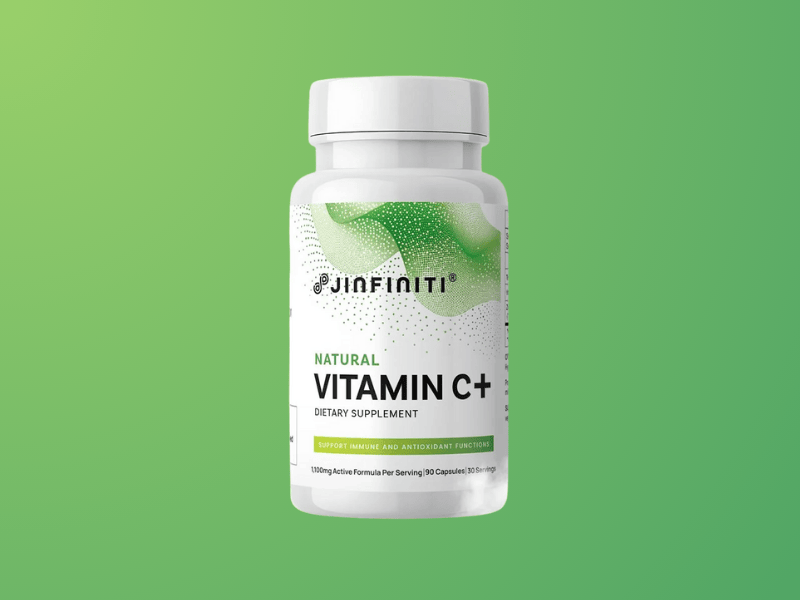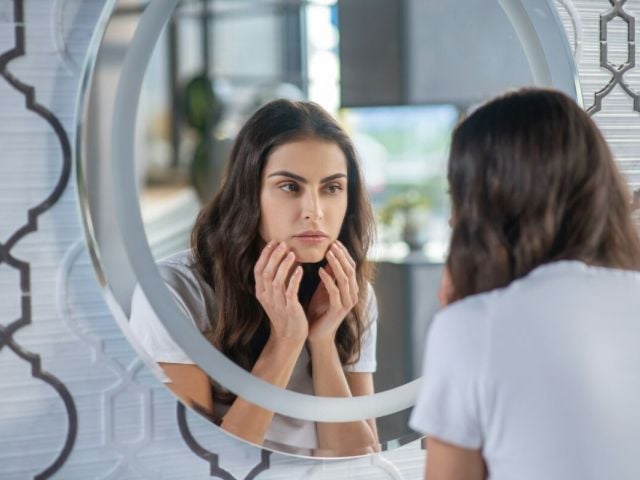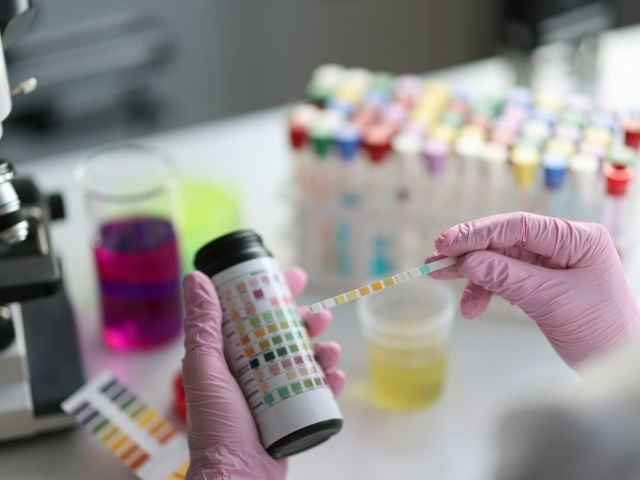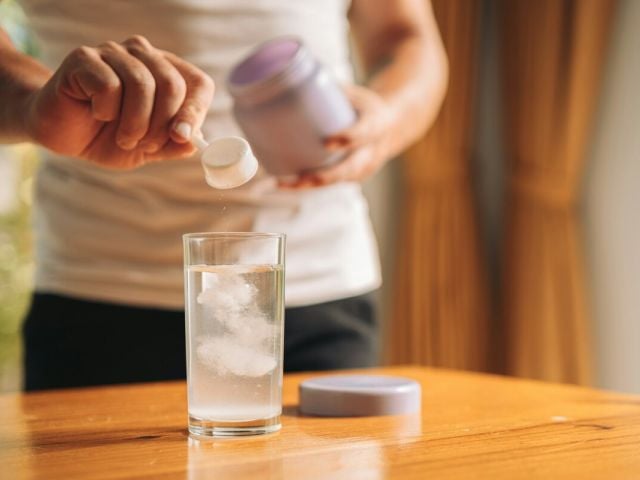
7 Health Benefits of Vitamin C for Women
Vitamin C does far more than fight off colds. For women, this water-soluble vitamin supports hormonal balance, protects heart health, and addresses unique physiological needs across different life stages.
While most people know vitamin C as an immune booster, research reveals that women may need this antioxidant for reasons that go beyond basic wellness. From reproductive health to bone density, the benefits of vitamin C extend into nearly every system in the female body.
Key Takeaways
- Women may need 90 mg of vitamin C daily, not the currently recommended 75 mg, based on new research from Vanderbilt University and the National Institutes of Health.
- Vitamin C supplementation at 750 mg daily increases progesterone levels by 77%, supporting fertility and hormonal balance.
- Taking vitamin C with iron-rich foods or supplements can double your iron absorption, helping prevent anemia that affects women disproportionately.
- Higher vitamin C intake reduces heart disease risk by 28% in women who consume at least 400 mg daily from supplements.
1. Supports Hormonal Balance and Fertility
Vitamin C plays a direct role in female hormone production. Women face unique hormonal challenges throughout their lives, and this vitamin helps regulate several reproductive processes.
Research shows that women who supplement with 750 mg of vitamin C daily see progesterone levels jump by 77% compared to women not taking the vitamin1. Progesterone matters for women experiencing luteal phase defects, where the second half of the menstrual cycle produces insufficient progesterone.
This hormonal support can make the difference for women trying to conceive. Low progesterone levels often lead to difficulty getting pregnant or maintaining early pregnancy.
The ovaries face constant oxidative stress from free radicals. Vitamin C concentrates in follicular fluid, the substance surrounding developing eggs.
Studies on fertility find that higher vitamin C concentrations in this fluid correlate with better egg and embryo quality2. This becomes increasingly important as women age and egg quality naturally declines.
For women undergoing fertility treatments, adequate vitamin C intake may improve outcomes. The vitamin protects eggs from oxidative damage that can impair their development.
2. Reduces Heart Disease Risk
Heart disease kills more women than any other condition. Vitamin C offers measurable protection for cardiovascular health in women.
A 16-year study following 85,118 female nurses found something striking. Women using vitamin C supplements showed a 28% lower risk of nonfatal heart attack and fatal coronary heart disease compared to non-users3.
The protective effect peaked at 400 mg daily. Beyond this amount, benefits plateaued because the body can only absorb so much vitamin C at once.
This antioxidant protects blood vessels from damage, reduces inflammation in arterial walls, and helps maintain healthy cholesterol levels. Women concerned about cardiovascular health should pay attention to their vitamin C supplementation.
3. Boosts Iron Absorption and Prevents Anemia
Women lose iron through menstruation each month. This makes iron deficiency anemia far more common in women than men.
Monthly blood loss isn’t the only factor. Pregnancy depletes iron stores, and many women eat less red meat than men, reducing dietary iron intake.
Symptoms of iron deficiency include fatigue, weakness, pale skin, and difficulty concentrating. These symptoms can significantly impact daily life and work performance.
Ascorbic acid converts iron from plant sources into a form your body can absorb more easily. Taking vitamin C with iron-rich meals or supplements can double iron absorption rates4.
Research confirms that combining vitamin C with iron supplementation works better than iron alone for raising hemoglobin levels in anemic women5. This simple pairing makes a real difference for women struggling with low iron.
If you take iron supplements, pair them with a glass of orange juice or a vitamin C supplement for maximum absorption.

4. Supports Bone Health During and After Menopause
Bone loss accelerates when estrogen levels drop during menopause. Vitamin C offers protection that many women don’t know about.
Studies on postmenopausal women show that adequate plasma vitamin C levels (at least 50 μmol/L) link to higher hip bone mineral density6. This effect appears strongest in women not using hormone replacement therapy.
One clinical trial found that adding just 250 mg of vitamin C daily to standard osteoporosis treatment significantly improved bone density outcomes. The vitamin doesn’t replace other bone health strategies, but it supports them.
Vitamin C plays a direct role in collagen formation. Since collagen forms the structural framework of bones, getting enough vitamin C matters for maintaining bone strength as you age.
Research involving 259 healthy women found that higher vitamin C levels correlated with better hormonal markers during menopause, including elevated progesterone and lower follicle-stimulating hormone7.
5. Promotes Healthy Skin and Slows Aging
The visible signs of aging often appear first in skin. Vitamin C helps maintain skin health through multiple mechanisms.
Vitamin C acts as a cofactor for enzymes that build and stabilize collagen structure. Without enough vitamin C, your body simply cannot produce collagen properly.
Clinical studies show that daily vitamin C use for at least three months improves fine and coarse wrinkles, skin texture, and overall appearance8. The changes aren’t dramatic overnight, but they accumulate over time.
Beyond collagen, vitamin C plays a role in protecting skin from sun damage. While it doesn’t replace sunscreen, the vitamin helps neutralize free radicals generated by UV exposure.
Women concerned about skin aging should know that both oral vitamin C supplementation and topical application can benefit skin health. The two approaches work through different mechanisms and can complement each other.
Dr. Ailsa Welch from the University of East Anglia notes that “vitamin C is almost never measured in the skin” and calls for more research to understand optimal intake levels for various health outcomes. This points to how much we still have to learn about vitamin C’s full impact on women’s health.
6. Strengthens Immune Defense
Women show higher plasma vitamin C concentrations than men, suggesting their bodies may have greater vitamin C needs for immune function.
The vitamin accumulates in immune cells at concentrations up to 100 times higher than plasma levels9. This concentration pattern tells us something about how important vitamin C is for immune system operation.
Vitamin C supports several immune functions:
- White blood cell production and function
- Antibody formation
- Protection of immune cells from oxidative damage
- Skin barrier integrity
For women experiencing chronic stress, vitamin C provides protection against the immune suppression that stress can cause. The vitamin supports adrenal glands during demanding periods.
While vitamin C supplementation won’t prevent every cold, adequate levels help your immune system respond effectively when you do encounter pathogens.
7. Protects Against Oxidative Stress
Free radicals damage cells throughout your body. This oxidative stress contributes to aging and disease development.
Vitamin C serves as one of your body’s primary antioxidants. The vitamin donates electrons to neutralize free radicals before they can damage cellular structures.
Women face particular oxidative stress during certain life stages. Pregnancy, intense exercise, chronic stress, and environmental pollution all increase free radical production.
Research on women shows that vitamin C reduces biomarkers of oxidative stress and inflammation10. This protective effect matters for long-term health outcomes.
Dr. Maret Traber from Oregon State University’s Linus Pauling Institute points out that “the protection we get from proper diet or supplements often comes from combinations of nutrients working together.” Vitamin C works alongside other antioxidants like vitamin E for comprehensive protection.
How Much Vitamin C Do Women Need?
Getting the right amount of vitamin C matters. Too little leaves you deficient, while excessive amounts offer no extra benefit.
Daily Requirements and New Research
Current recommendations set the RDA at 75 mg daily for women. New research suggests this amount falls short.
A landmark study from Vanderbilt University and the National Institutes of Health involving 15 young women found that 90 mg daily should be the target, matching men’s requirements11.
The research revealed that meaningful increases in vitamin C levels only occurred above 100 mg daily. Plasma and cellular saturation happened between 200 and 400 mg daily. Higher doses simply got excreted in urine.
| Life Stage | Recommended Daily Intake |
|---|---|
| Adult women | 90 mg (new research) / 75 mg (current RDA) |
| Pregnant women | 85 mg |
| Breastfeeding women | 120 mg |
| Women who smoke | Add 35 mg to base recommendation |
Special Circumstances
Some women need higher amounts of vitamin C:
- Smokers require an additional 35 mg daily due to increased oxidative stress from tobacco
- Women under chronic stress may benefit from higher intakes to support adrenal function
- Athletes and physically active women have elevated needs from exercise-related oxidative stress
- Women with inflammatory conditions may need therapeutic doses
Whether vitamin C supplementation makes sense for you depends on your diet, health status, and life circumstances.
🍊 MORE VITAMIN C INSIGHTS
- Fighting off a cold? Learn what research says about vitamin C and zinc for cold prevention and how quickly they work.
- Find out how vitamin C can support weight loss through metabolism and fat oxidation.
- Your digestive system needs more than probiotics. Discover how vitamin C benefits digestion in ways you haven’t considered.
Best Sources of Vitamin C
You can get vitamin C from food, supplements, or both. Each approach has advantages.
Top Food Sources
Fruits and vegetables provide vitamin C alongside other beneficial nutrients. The top sources of vitamin C include:
- Guava (376 mg per cup)
- Yellow bell peppers (342 mg per large pepper)
- Strawberries (89 mg per cup)
- Kiwi fruit (high bioavailability)
- Cruciferous vegetables like kale, broccoli, and Brussels sprouts
- Citrus fruits including oranges, lemons, and grapefruit
Food sources offer the advantage of providing complementary nutrients that work with vitamin C. The vitamin doesn’t work in isolation.
When to Consider Supplements
Studies showing cardiovascular protection and hormonal benefits typically used supplement doses of 500 to 1000 mg daily. You cannot easily get these amounts from diet alone.
If you want therapeutic effects beyond basic nutrition, a vitamin C supplement makes sense. Many women find that taking vitamin C supplements helps them reach optimal levels without eating enormous amounts of fruits and vegetables.
Natural vitamin C supplements derived from whole food sources like amla (Indian gooseberry) may offer better absorption than synthetic ascorbic acid. Some people also tolerate food-based forms better.
You can take too much vitamin C, though serious problems are rare. High doses of vitamin C (above 2000 mg daily) can cause digestive upset in some women. If you experience stomach discomfort, reduce your dose.
For women with recurrent urinary tract infections, buffered forms of vitamin C minimize potential bladder irritation.
Bottom Line
Vitamin C does far more for women’s health than most people realize. The vitamin supports hormonal balance, protects your heart, strengthens bones, and helps maintain healthy skin as you age.
Most women should aim for at least 90 mg daily from food sources, with higher amounts potentially beneficial for specific health goals like cardiovascular protection or fertility support. If you’re not getting enough vitamin C from your diet, supplementation offers a safe way to reach optimal levels. The evidence clearly shows that adequate vitamin C intake throughout life supports better health outcomes for women at every stage.
Join Our 50,000+ Health Community
Access research-backed health optimization strategies used by longevity experts. Weekly insights, exclusive discounts, member pricing.
Referenced Sources
- https://www.fertstert.org/article/S0015-0282(03)00657-5/pdf ↩︎
- https://ijwhr.net/text.php?id=173 ↩︎
- https://www.jacc.org/doi/10.1016/S0735-1097(03)00575-8 ↩︎
- https://sjm-fk.ejournal.unsri.ac.id/index.php/UnsriMedJ/article/view/125 ↩︎
- https://pubmed.ncbi.nlm.nih.gov/36231177/ ↩︎
- https://pubmed.ncbi.nlm.nih.gov/34510185/ ↩︎
- https://pubmed.ncbi.nlm.nih.gov/26581679/ ↩︎
- https://pmc.ncbi.nlm.nih.gov/articles/PMC5579659/ ↩︎
- https://pmc.ncbi.nlm.nih.gov/articles/PMC5707683/ ↩︎
- https://www.mdpi.com/2072-6643/16/21/3775 ↩︎
- https://news.vumc.org/reporter-archive/study-young-women-need-more-vitamin-c/ ↩︎

Get weekly health insights and exclusive offers by joining our newsletter.










